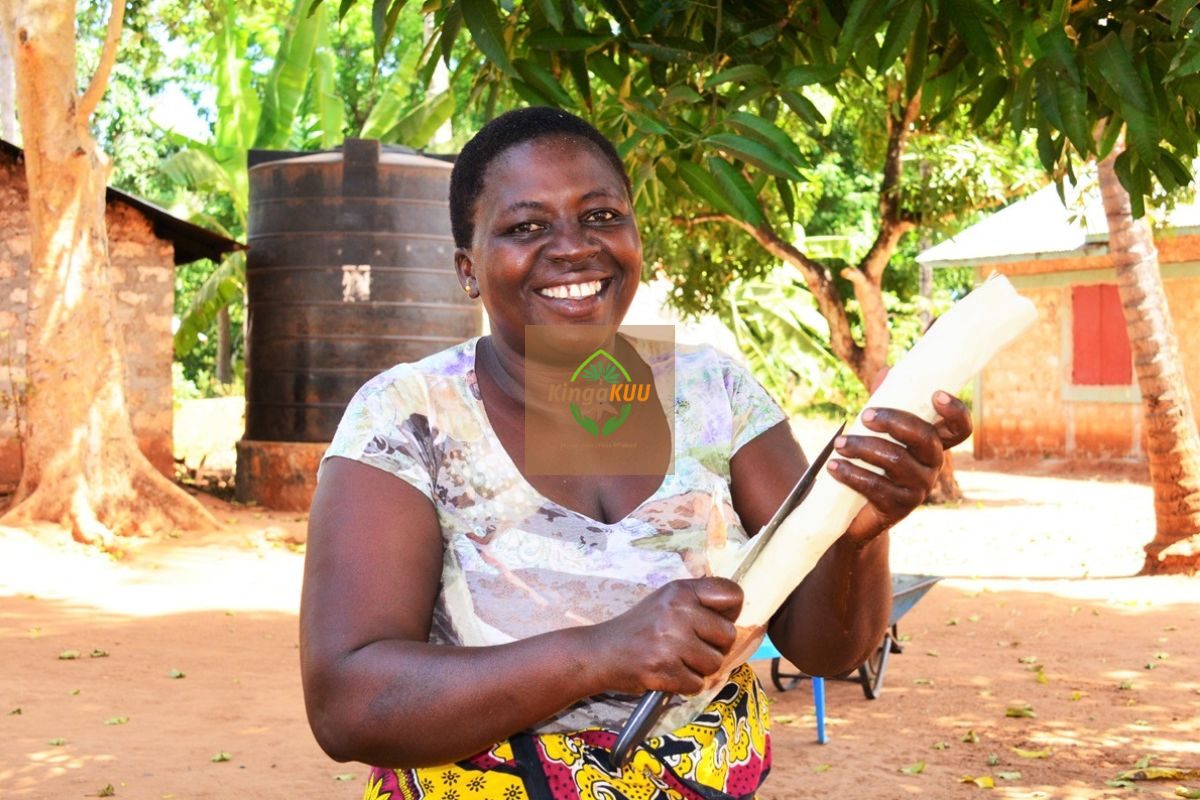When we talk to Lilian Ziro, she has just arrived home from one of her friends’ farms, in neighbouring Mikingirini, Kilifi County, coastal Kenya. She had dashed out to buy cassava so she would make lunch for her family, and a 15-minute walk took her to Ms. Dhahabu’s farm.
Why would a cassava farmer have to buy from another?
“She is harvesting now, and I am not, so I buy from her. She has actually taken her price up from Sh20 to Sh3o a kilo within a few days; it shows the market is getting better,” she giggles.
Ms. Ziro’s crop is on slightly over an acre of land. She has reduced her production gradually, mainly because she no longer has access to the resources that were readily available to her in the past.
“I used to do 3 or 4 acres, but then that was on leased land. When people started realizing good profits in cassava farming, especially after the arrival of the Tajirika variety, they stopped leasing out land and started farming themselves.”
Tajirika, we already established, is the most famous variety in the area. While older varieties such as Shibe and Karembo took a year to mature, Tajirika takes about 8 months. It also is higher-yielding, especially due to its great ability to resist drought, pests and diseases, she says.
Ms Ziro started planting cassava in 2011 but only switched to the more improved varieties in 2016.
Who are her most consistent customers, we ask.
“There are people who buy to go to sell in the market, and I also sell to schools. I sell to individuals, and we also make crisps,” she says.
While she does not have actual figures of the increase in number of kilos per acre with Tajirika, as compared to the older varieties, Ms. Ziro says that the new variety promises “many, many kilos more”.
Her best estimates are above 4 tonnes an acre “if you do all that is needed, including weeding twice and on time,” she says.
But when she and her peers visited the biotech cassava trial site at KALRO-Mtwapa, she was stunned at the new variety, dubbed KingaKUU, which she hopes will be the path out of poverty for farmers in the locality.
“These ones will not be attacked by cassava brown streak disease, which means they will give us way higher yields, and they will be fast maturing, so we will sell them very fast. We will probably sell at significantly higher prices because of the higher quality,” she says.


